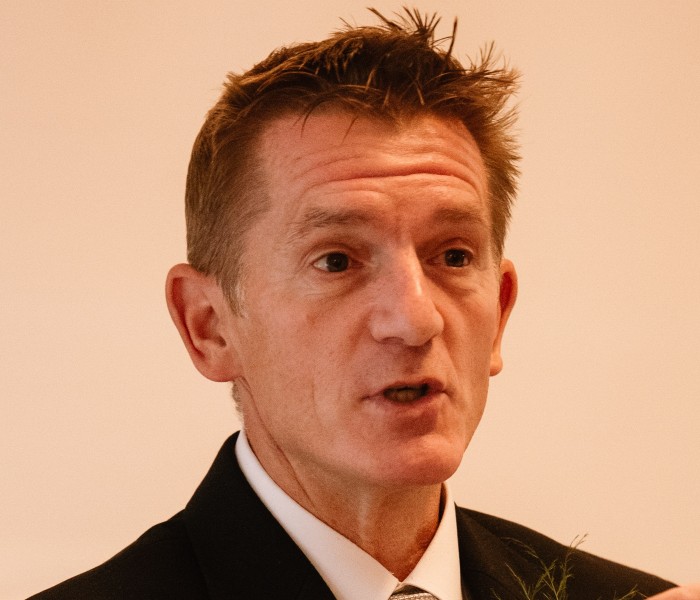Scotland players must shut out the importance of Euro play-off to succeed, says top psychologist
Back to news
Scotland players must focus on their own individual performances rather than become distracted by the significance of tonight’s Euro 2020 play-off final if they are to triumph, according to a top sports psychologist.
A victory against Serbia in Belgrade will see Steve Clarke’s side qualify for a major finals for the first time in 22 years – with their last appearance at the 1998 World Cup in France.
Dr John Mathers, a sports psychologist at the University of Stirling, has worked with professional sports teams and individual athletes, competing both on the national and international stage, for more than 25 years. He believes tonight’s result could come down to which team best copes with the pressure and expectation of the one-off game.
His comments come just a day after Scotland defender Scott McKenna warned that it was important that the team does not “get too caught up in it all” and avoids getting “too emotionally involved”.
Legacy
Dr Mathers said: “There is a strong appetite for Scotland to qualify and renew its acquaintance with elite tournaments. This can come from many sources – such as fans, the media, clubs and the National Football Association, which will be hoping that success may have a positive impact on the game in Scotland as a whole. However, perhaps most importantly, there will be an eagerness for each player to reach the finals and improve their own individual and collective legacy.
“The performance of the team in this match will partly depend on the extent to which each player can cope with this ‘distraction’. Elite athletes cope with these distractions by focusing on the present, staying connected with their roles and responsibilities and being committed to their individual and team goals for the duration of the match. The extent to which a player will be able to do this will depend on their individual mentality – or coping skills – which will be shaped by their previous experiences and training, and the extent to which they feel comfortable in the match setting.
“I would recommend that the Scotland players try to play the match – and not the occasion. Fundamentally, each player should choose to focus on their predefined role rather than be distracted by the consequence or significance of the result.”

Sports psychologist, University of Stirling
Being relaxed can be a good thing – but some players require an edge of tension and anxiety to galvanise their effort. Again, I would recommend each player to focus on their individual preparations for the match to help them produce their best performance.
Dr Mathers said that the players most likely to cope best with the situation are those who are able to regulate their individual stress levels, focus correctly, adhere to their process goals, practice positive self-talk, and recover from mistakes quickly. He added that it’s important to create an environment of collective identity – where each player feels part of the group and has a shared vision – but can prepare individually in a way that allows them to deliver on their role.
“I’d be looking to create a blend of group togetherness and individual excellence, which I am sure the coaching staff will have been working on in recent times,” he said.
Reflecting on the intense and emotional build-up to the match, Dr Mathers said: “I am sure the squad will have been relaxed in the days leading up to the game – the test will come when the match approaches.
“Inappropriate emotions can often be a distraction in professional sport. However, some players thrive on high levels of emotion and perceive this as a positive benefit. The manager will know the players well though, and allow each of them to prepare in the way that best fits their psychophysiological make up.
“Being relaxed can be a good thing – but some players require an edge of tension and anxiety to galvanise their effort. Again, I would recommend each player to focus on their individual preparations for the match to help them produce their best performance.”
Future performances
Dr Mathers believes tonight’s result could be pivotal in terms of its impact on future performances, adding: “Recent performance history shapes future expectations. So, if a team experiences consistent failure, the expectancy of success is reduced. In many ways, the longer a team fails to qualify for a major event, the harder it seems to become. If Scotland qualifies for the finals this time, then there will be an expectancy that we can do it again.”
Dr Mathers, an accredited British Association of Sport and Exercise Sciences (BASES) sports psychologist, is Programme Director for the MSc Psychology of Sport at the University of Stirling. His research interests focus on the delivery and integration of mental skills teaching and learning within elite sport and he provides sports psychology consultancy services to a number of national governing bodies of sport in Scotland, the UK and Europe.

